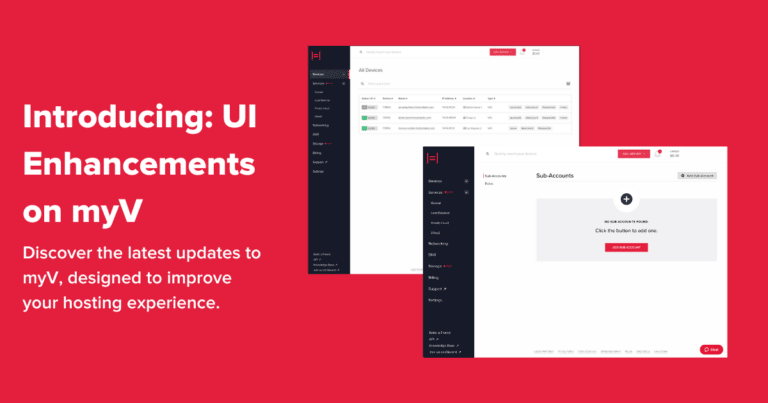
You’ve been asking for it and we’ve been listening.
The time has come to announce that Hivelocity is now part of the WHMCS Marketplace. With our new open API and WHMCS integration, it’s never been easier to buy and sell Hivelocity dedicated server solutions. This means resellers like you can now white label resell Hivelocity’s top-tier servers and services to your own customers, under your own brand, all from within the convenience of WHMCS. Give your customers the best while still reaping the benefits of what WHMCS has to offer.
But for those who may be new to reselling, what is WHMCS and what does this announcement mean for you? Read on to learn about all the benefits WHMCS has to offer!
What is WHMCS and How do You Become a Reseller?

Let’s say you want to start a domain hosting business but you don’t own your own data center. While a large enough startup loan could secure you a building somewhere, there’s more that goes into a data center than just the space needed to store servers. On-site security procedures; proper cooling and electrical wiring; establishing a strong, fail-proof network. For a company new to the industry, that means a large initial investment and a high degree of risk.
Alternatively, you can always choose to colocate, selling your own hardware and services, but utilizing the real estate of another, larger provider. By colocating your servers inside a larger data center, you can offer your customers the same great perks they would find at a large-scale facility.
As a reseller though, you take this idea one step further. Rather than selling products and services specific to your company, a reseller actually sells the products and services of another provider, all under the umbrella of the reseller’s own brand.
Reselling is a great option for smaller service providers who want to give their clients a wider range of options without worrying about the overhead of pre-purchasing hundreds of servers.
But how does this work, and what does being a reseller look like in practical application?
Reselling has a couple of different forms. For example, you could buy a dedicated server from a larger hosting provider, store the device in their data center, and partition the hard drive into a handful of virtual machines. Then you could turn around and sell these VPS hosting options to other customers under your own brand. For all intents and purposes, you’re now running your own hosting company.
But, let’s say you have a client who is looking to buy an entire dedicated server. Maybe you’ve run out or they’re looking for a model you don’t carry. As a reseller, your clients can buy their servers directly from another provider, all from within your website’s storefront. With the right user interface and proper API integration, this process can even be made so seamless that your customers are never aware. This makes reselling a great option for smaller service providers who want to give their clients a wider range of options without worrying about the overhead of pre-purchasing hundreds of servers.
But this only covers reselling on a conceptual level. As anyone who’s run a business will tell you, there is unfortunately much more too being a business owner than sitting back and raking in a profit. Staying on top of payments and invoicing; providing customer service and product support; managing the technical systems your company relies on. It takes a lot to run a company, and that’s especially true within the tech industry.
That’s where WHMCS comes in. Short for Web Host Manager Complete Solution, WHMCS is an all-in-one tool designed to automate those hosting tasks which are most essential and simultaneously most tedious.
By combining automatic billing and invoice generation, domain registration and renewal, and a full ticketing support system, WHMCS gives hosting providers a singular tool capable of handling all facets of their hosting business. With single sign-on and full cPanel integration, both resellers and their customers can manage their servers back-end directly from within WHMCS.
With WHMCS, you can keep your invoices and receipts flowing smoothly without the drain of manual oversight.
Best of all, the WHMCS Marketplace features hundreds of plugins and modules which allow WHMCS to easily integrate with existing software, control panels, and service providers. Combine this with WHMCS’s template-based, customizable front-end, and you’ve got a tool which can be perfectly tailored to your needs and those of your clients.
So now that you know what WHMCS is and does, let’s take a look at some of the features that help set it apart.
WHMCS Features

Automated Billing
Some of WHMCS’s most applauded and emphasized features are the various automated billing tools that come pre-packaged with the software. As you already know, the goal of any good business is making money. When billing and collections eat up time you could be using to expand your clientele though, then this necessary process starts affecting your bottom-line.
With WHMCS, you can keep your invoices and receipts flowing smoothly without the drain of manual oversight.
Send professional-looking PDF invoices and payment reminders and set your customers’ billing cycles to generate these invoices automatically. Create coupons and exclusive promo codes, generate customer quotes, and process refunds directly from your invoices. Proration options allow for easier invoicing of customers who upgrade services mid-cycle, and late fees and account suspensions can be handled directly from within the WHMCS control panel. Multiple payment methods and currencies can be accepted, and a tokenized storage system keeps credit card transactions secure. Best of all, 3rd party gateways such as PayPal and 2CheckOut can be utilized to avoid taking on the strict regulations of PCI compliance entirely.
Domain Registration and Renewal
Automated billing tools aren’t the only perks WHMCS provides. After all, domain registration is a necessary service for any hosting provider. For this reason, domain registration and renewal can all be handled automatically from within WHMCS, providing a perk not only for the hosting provider, but their customers as well. With the ability to check domain name availability in real-time and automatically offer suggestions on domain name alternatives, WHMCS helps your clients hit the ground running. Domains can be transferred easily and customers can manage their own DNS records as needed directly through the WHMCS interface.
Ticketing Support System
One of WHMCS’s biggest features is its built-in ticketing support system. Including a fully-functional communication platform, customer’s can submit tickets directly through WHMCS or via email. From there, resellers are given a range of back-end options to handle and sort these tickets, with the ability to group them by department or assign tickets directly to team members.
On top of this, WHMCS includes a built-in knowledge base, covering basic troubleshooting and FAQs associated with the tool. This provides your clients with a means of remediating smaller issues without the need for escalating them through the ticketing system; helping to keep your users informed and your personnel free to deal with larger issues.
Customizable Interface
For reseller’s with an already established brand or those looking to establish their own brand, one of the other big advantages of WHMCS is its customizable interface.
By purchasing the Plus plan or higher, resellers gain access to a version of the tool which features no WHMCS related branding. Additionally, all versions of the tool include a fully-customizable template-based client-facing interface. Logos can be switched out, and the interface can be outfitted to integrate seamlessly with your company’s existing branding.
In other words, WHMCS let’s you directly resell the hardware and services of another provider, without your customers ever leaving your site or even noticing the other provider is involved.
By combining automatic billing, domain registration, and a full ticketing support system, WHMCS gives hosting providers a singular tool capable of handling all facets of their hosting business.
But even with all the features we’ve just discussed, these together still compose just one piece of what makes WHMCS so great for resellers.
Ultimately, the goal of WHMCS is to bring greater convenience and control to the world of reselling. While the automation tools included with WHMCS’s list of features are an integral part of achieving this goal, it’s the hundreds of modules available through the WHMCS Marketplace that really seal the deal.
WHMCS Marketplace
The WHMCS Marketplace is a website hosted by WHMCS which contains hundreds of plugins designed to help integrate WHMCS into the tools and services you already use. While WHMCS does hold a partnership with cPanel, allowing for direct integration of available WHMCS features into your customers’ cPanel interfaces, this isn’t the only control panel WHMCS is designed to work with. In fact, there are modules out there for many of the most popular control panel options, including Plesk, DirectAdmin, and Virtualmin Pro.
The Marketplace contains many modules for other popular software as well, including Virtual Machine management tools such as SolusVM and Cloudmin, ticket management tools such as Zendesk, and web design software like Weebly website builder, to name a few. In addition, the Marketplace also offers smaller enhancements: plugins to add live chat services, accept bitcoin payments, boost security, and more.
In other words, WHMCS can be easily upgraded and customized to meet your specific needs. This makes it not only an essential tool for reselling, but a highly flexible one as well.
Hivelocity and WHMCS

With the introduction of our new open RESTful API, deploying a server with Hivelocity has never been easier. Codify your bare-metal deployment and integrate your dedicated server management seamlessly into your existing infrastructure.
And now, with our new Hivelocity WHMCS module, you can provide the benefits of a Hivelocity cloud-like dedicated server solution to your customers with the same level of convenience and reliability you’ve come to expect from the world’s leading hosting reseller platform. Give your customers the best while saving yourself time and stress. With Hivelocity’s world-class network and support, you can rest easy knowing your clients are in good hands.
So if you’re ready to start reselling Hivelocity bare-metal dedicated servers, download our Hivelocity module through the WHMCS Marketplace today, or find us on GitHub.
Don’t already have a WHMCS license? Licenses can be obtained through the WHMCS official website, or can be purchased through us directly for even greater convenience. Grow your business with Hivelocity and WHMCS.
For more information, call or live chat with one of our sales agents today!
– Sean Kelly
Additional Links:
Looking for more information on reselling Hivelocity servers and services? Check out our Partners & Reseller Programs page!
In need of more great content? Interested in cPanel, Private Cloud, or Edge Computing? Check out our recent posts for more news, guides, and industry insights!


1 thought on “WHMCS & Hivelocity: Your Reseller Dream Team”
I have installed it on WHMCS Version: 7.10.3, but it’s not working.
https://prnt.sc/121q3dd